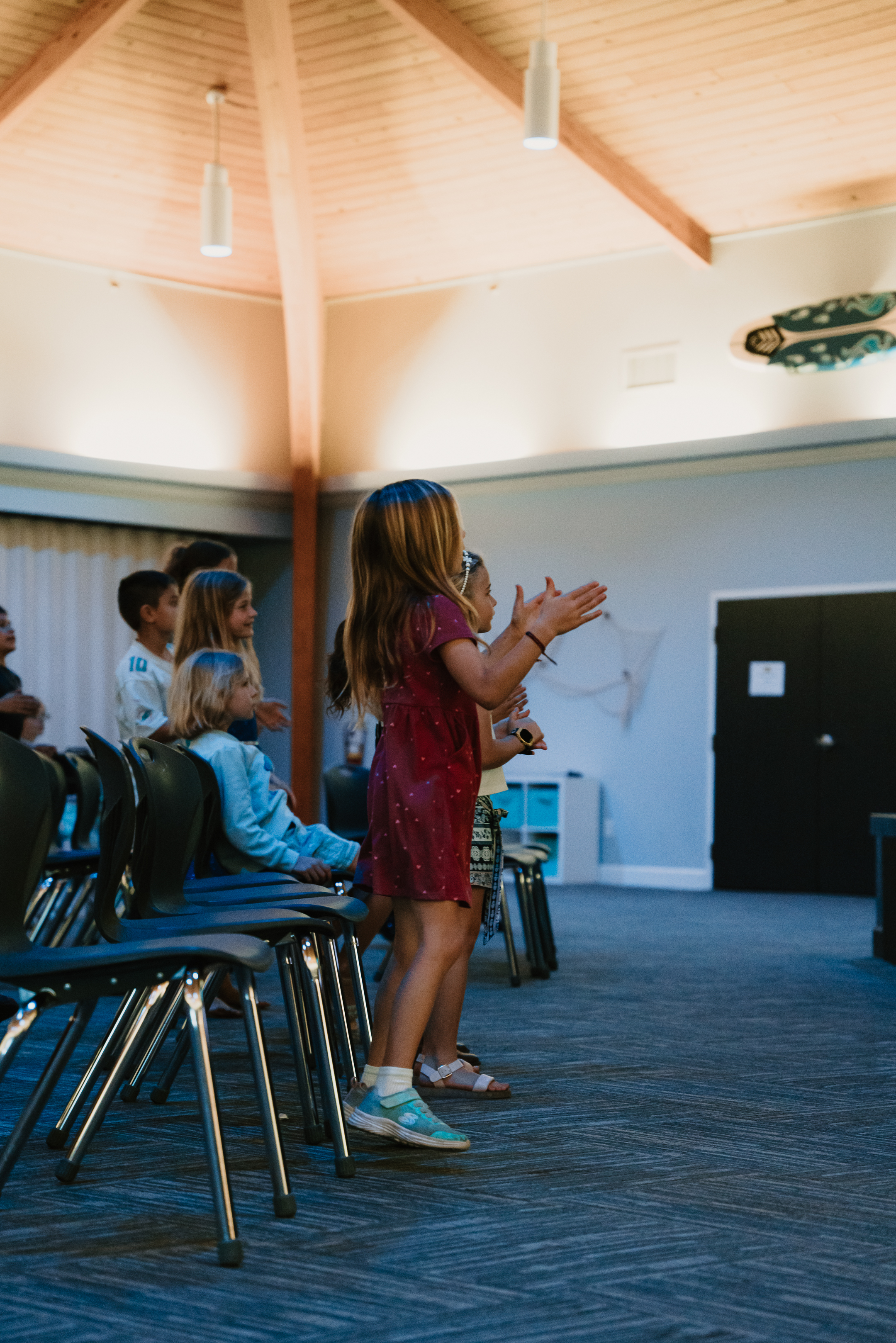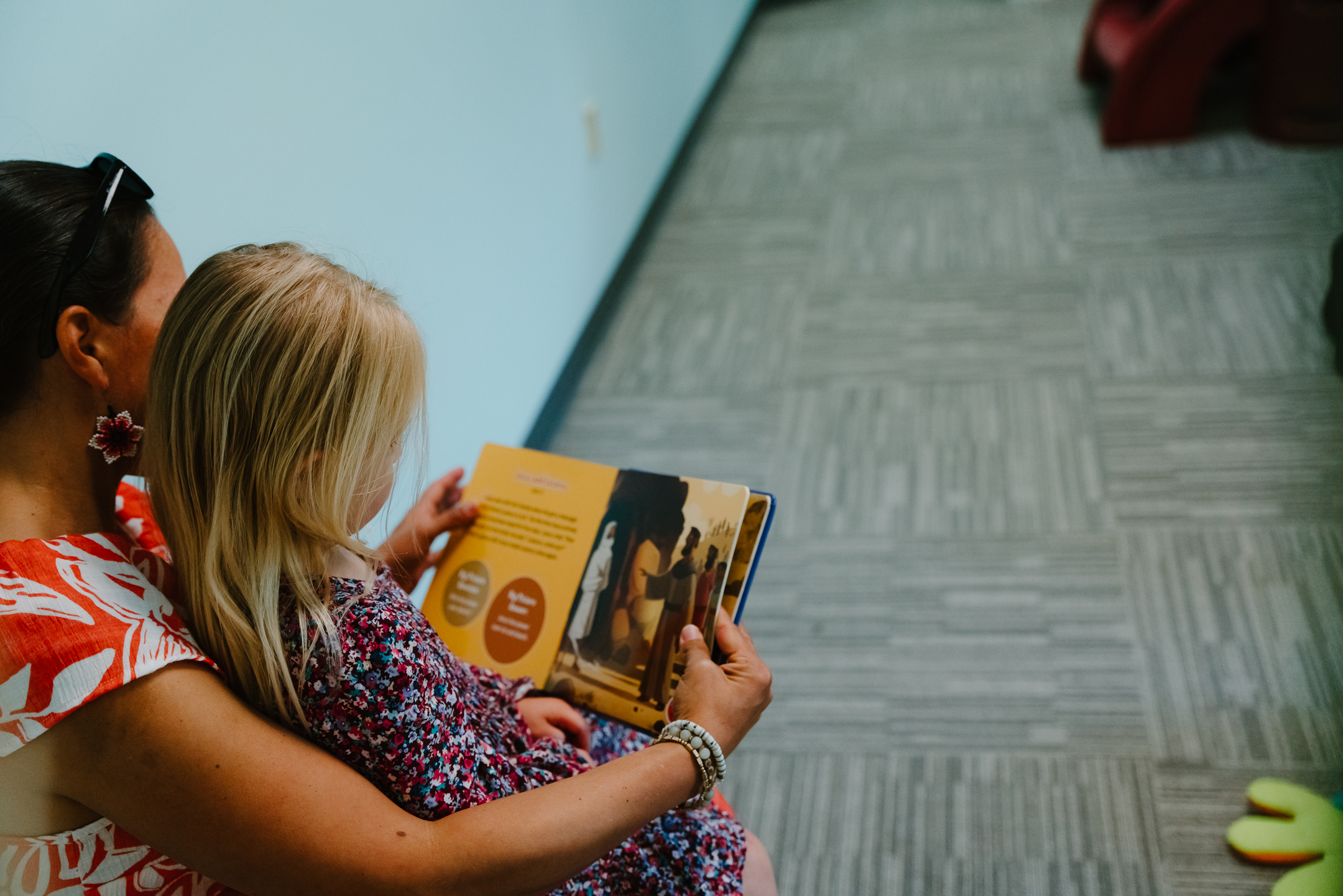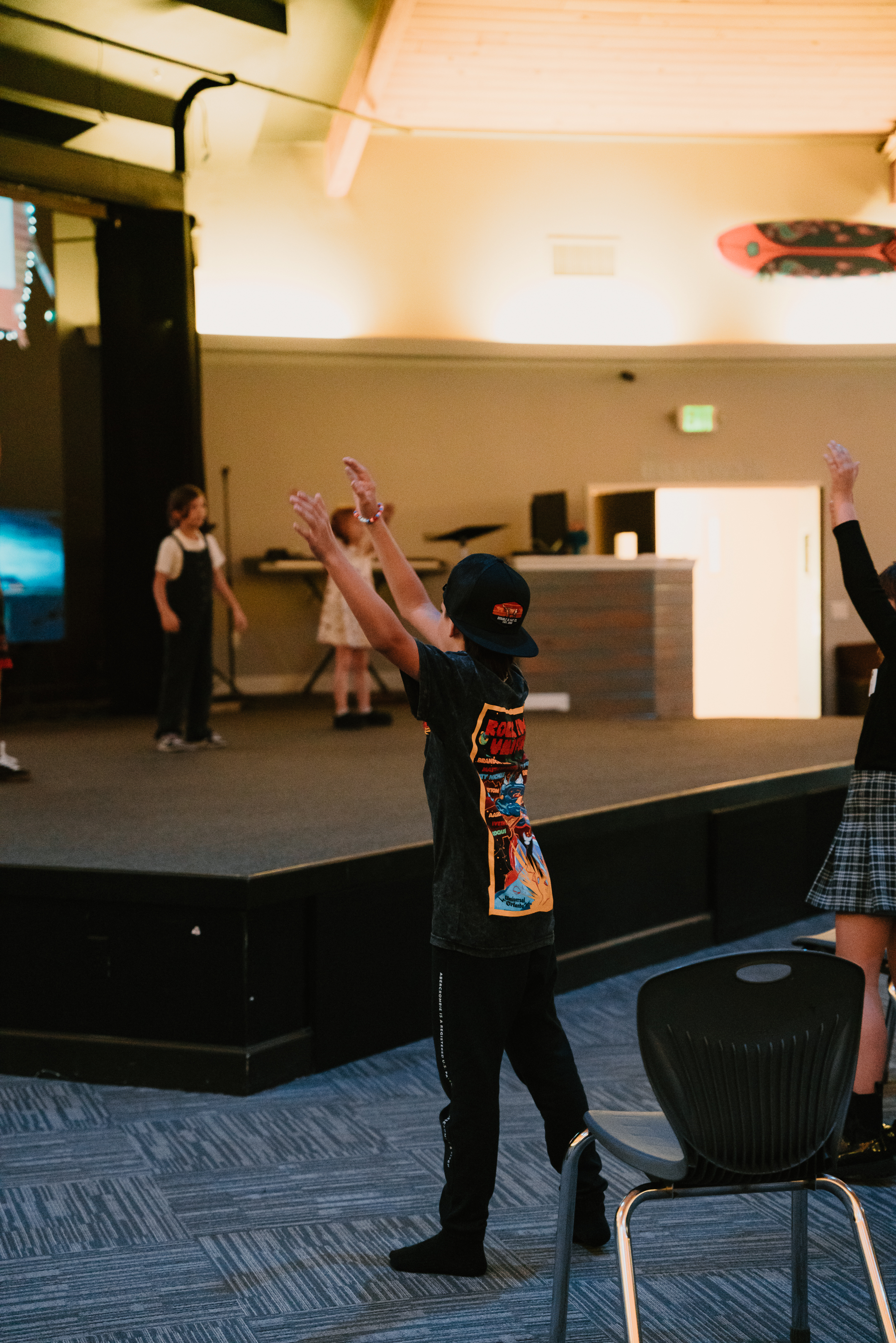Welcome to Westside Kids


Westside Preschool
Westside Preschool is open for children from Infants through 4 years old! Located in the Main Building, just right of the lobby, open for both 9am and 10:30am Services.
Each class does a lesson about Biblical stories and how they point back to Jesus, has a small snack, and has plenty of time to play.

Westside Kids
Westside Kids is open for kids from Kindergarten through 5th grade! Located in the B Building, South of the Main Building, open for both 9am and 10:30am Services. We also have Wednesday night Kids in the Main Building at 6pm.
Here your children will have two unique services to help them grow closer to God and grow in their relationship with Him.
Resources
We want to come alongside you and help you grow into the primary disciple-makers and ambassadors for God that He has called you to be as parents. Below we have gathered a few resources to help you in this journey.
Parenting Articles
"Known for the D6 Conference and D6 Curriculum, Randall House helps lead the family ministry conversation. Randall House provides events, opportunities and resources to help you do generational discipleship at church and at home. For more information, visit randallhouse.com."
"Your family. Your Bible study. Your community. You are the church, and Lifeway is here to serve you with biblical resources for everything life brings your way."
"We are a fellowship of evangelical churches deeply committed to renewing our faith in the gospel of Christ and reforming ministry to conform fully to the Scriptures."
Books
"Discipling your family can feel like an intimidating task, but it doesn’t need to be overwhelming or complicated. With a simple plan in place, discipleship is something every parent can do."
CLICK HERE FOR FAMILY DISCIPLESHIP PODCAST
"In this life-giving book, Paul Tripp offers parents much more than a to-do list. Instead, he presents us with a big-picture view of God’s plan for us as parents. Freed from the burden of trying to manufacture life-change in our children’s hearts, we can embrace a grand perspective of parenting overflowing with vision, purpose, and joy."
"Discover how closely the gospel connects with today’s motherhood. Join Emily and Laura as they walk through the redemptive story and reveal how the gospel applies to your everyday life, bringing hope, freedom, and joy in every area of motherhood."
CLICK HERE FOR RISEN MOTHERHOOD PODCAST
"Gathering together for worship is an indispensable part of your family’s spiritual life. It is a means for God to reveal himself to you and your loved ones in a powerful way. This practical guide will prove invaluable to families as they practice God-glorifying, Christ-exalting worship through Bible reading, prayer, and singing."
"When you begin to understand the bigger picture of God’s purpose for you in your marriage and family, you’ll see that the good news of Jesus makes it possible for you to love and lead without fear and discouragement."
CLICK HERE FOR DAD TIRED PODCAST
"Discover simple habits and easy-to-implement daily rhythms that will help you find meaning beyond the chaos of family life as you create a home where kids and parents alike practice how to love God and each other."
7 Questions That’ll Get Your Kid To Talk
7 QUESTIONS THAT'LL GET YOUR KIDS TO TALK
This school year, I have seen a shift in my oldest son. Last year, when he would come home from school, he couldn't stop talking about his day. Now, most of the time, I get one-word answers or short task questions. Because of this, we made a rule that he couldn't use the words "good," "fine," or "OK" when we ask him about school.
Instead of getting frustrated, I asked some friends with older boys how they get their kids talking and they gave me some great advice. They each told me it's all about extending the conversation with great follow-up questions. Here are 7 questions to ask kids to get them talking.
1. How did that make you feel?
Your kids may not want to talk about their feelings, but our feelings provide important information. Asking this question acknowledges that it is OK to express our feelings and it also will give you insight into more topics worth discussing. This question expresses your concern for your child.
2. Why do you think __________ is that way?
When talking about current events, school, or everyday life, this question allows you to hear how your kids are processing the world. They may not have an answer, it forces them to think more deeply about what they are communicating to you.
3. What are your thoughts in this moment?
There are times when we genuinely do not know what our kids are thinking. Instead of getting frustrated, ask this question. You may know what they are thinking, but let them process and communicate their thoughts. Tip: refrain from asking this question during heated discussions with your kids because it may cause more conflict than clarity.
4. Did it turn out how you thought it would? Why or why not?
This question is good when kids share a story they heard, a situation they were in, or a problem they faced. It helps you gain insight into how they perceive cause and effect. It also lets you learn their thought process and sets you up for more questions and conversation.
5. Can you help me understand?
Asking this question with genuine concern will communicate that you want to understand what is going on. When you don't understand what your kids are trying to tell you, this question encourages them to explain.
6. What do think you should do about it?
As your kids grow, our role begins to change from caregiver to coach. As we coach our kids, we help teach them how to solve problems and navigate situations on their own. This question lets us hear what they think and helps us coach them through whatever they're going through.
7. On a scale of one to 10, how important is this to you?
This question is the first in a series you can ask that helps kids solve problems on their own. I asked it when my son was struggling to get his homework done. "On a scale of one to 10, how important is finishing your homework?" He answered honestly with a "two." So I asked what he'd need for that number to change to a seven or eight—in order for finishing his homework to feel more important to him—and he said it was all about the question and he or she might say, "It would be a seven or eight if I knew I could play outside as soon as I finished it." Give your kid permission to do that, and suddenly, finishing homework feels more important to him or... and you got your kid talking about the problem.
When was the last meaningful conversation you had with your kids?
When you try to talk to your kids do they lean into the conversation or do they try and get out of the conversation?
Do you use conversation for connection more than correction?
Where is the best location to have good conversations with your kids? (Car, bed, throwing a football, etc?)
empoweredhomes.org



